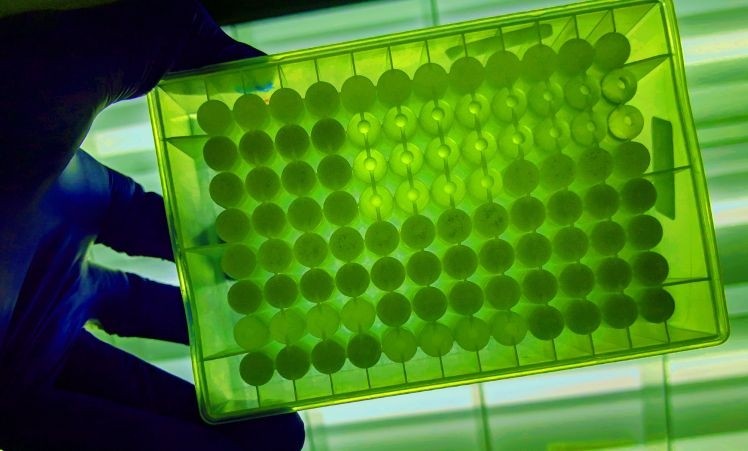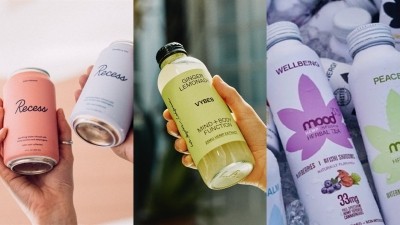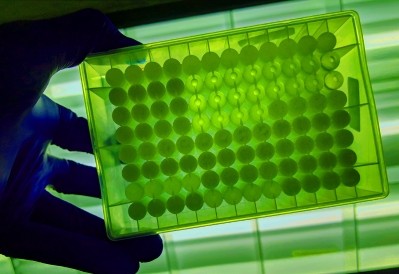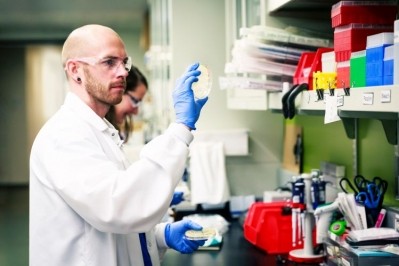Demetrix begins demo scale production of rare cannabinoid CBG

The move follows the completion of numerous pilot-scale fermentations and is a critical milestone towards commercialization for the venture-backed company, which deploys technology developed by synthetic biology pioneer Dr Jay Keasling at UC Berkeley (referenced in a paper in Nature in early 2019), and has raised $61m to date.
To put the latest milestone into perspective, full commercial scale production might be at 100,000+ liters, while pilot scale would be 1,000 liters and below, CEO Jeff Ubersax, PhD, told FoodNavigator-USA.
“It’s about finalizing the production process both for fermentation and the purification step at the end that could be used either in your own larger-scale facility or in larger-scale contract manufacturing.
"At the 15,000 liter-scale, we're generating the volumes of product we need for toxicology studies, NDINs, GRAS notification with the FDA."
'There are more than 100 cannabinoids in the cannabis plant but only a few of them are really accessible through agriculture'
While some natural food & supplement companies are only interested in cannabinoids extracted directly from hemp or marijuana plants, the market for cannabinoids produced via microbial fermentation (Demetrix uses a genetically engineered baker’s yeast to produce its target cannabinoids in a fermentation tank) is potentially huge, as the pesticide-free process delivers higher yields and consistent purity at a “substantially lower cost,” claimed Ubersax.
This process also uses less land, water and energy, and enables firms to produce rarer cannabinoids (found in tiny percentages in the flower) it would not be commercially viable to extract from plants, claimed Ubersax, a molecular biologist and former VP of R&D at Amyris, which is also developing cannabinoids via fermentation.
"There are more than 100 cannabinoids in the cannabis plant but only a few of them are really accessible through agriculture and there are other cannabinoids [in addition to CBD] that are going to have a lot of promise. We continue to screen these rare cannabioids to understand what they could potentially be good for.
"We have a rare opportunity to bring a new natural ingredient to market that hasn’t really been studied well.”
What is CBG?
CBG – a non-intoxicating minor cannabinoid found in very low levels in the cannabis flower, even with advances in plant breeding – is gaining traction as marketers look for the ‘next CBD.’
While several supplement makers now highlight CBG in their formulations, describing it as delivering “almost coffee-like energy and focus” and “neuroprotective,” such claims are not (yet) backed by human clinical data.
“There’s some body of evidence out there but not a lot,” conceded Ubersax.
A quick search of the literature reveals a small number of animal studies suggesting a range of potentially exciting benefits, from killing staph infections such as MRSA; to inhibiting the growth of certain tumors; stimulating appetite; reducing IBD-induced inflammation; reducing intraocular pressure in the eye (associated with glaucoma); and potentially helping people suffering from psoriasis and eczema.
But what does this mean for foods and supplements, which cannot claim to treat, prevent or cure any disease?

According to Ubersax: “Many cannabinoids, including CBG, show promise in areas that support desired consumer benefits, such as antioxidants and anti-inflammatories. Demetrix has been investing in understanding the potential properties of each and how these can translate to consumer product benefits.”
But he added: “Until we have confirmation on an accepted safe dose for supplements, it is difficult to determine what benefits are available to consumers. For example, a cannabinoid may be a good sleep aid, but the dose needed to achieve the effect could be higher than the acceptable safe level for supplements. This highlights how much there is to still uncover about this class of compounds.”
‘We are entering uncharted territory’
Asked when commercial quantities of CBG might be available, he said: “We expect to be producing at commercial scale for topical use (skincare and personal care) before any CBG filing is completed for food or supplements… We are pursuing the regulatory path for food and supplements, these just take a longer time to complete.”
As for when Demetrix might have the safety data needed for GRAS determinations or NDINs, he said: “This is hard to predict because of the lack of existing data and the expected added scrutiny to cannabinoid filings. For example, if the FDA requires drug interaction studies or extended reproductive toxicology studies, these each could easily add half a year or longer to the timeline.
“We are entering uncharted territory and actively engaging with the FDA to pave the path for cannabinoids.”
Isolates or full/broad spectrum extracts
While some companies have argued that high-purity, isolated cannabinoids should be restricted to pharmaceuticals (ie. they belong in drugs); leaving food and supplement makers to focus on ‘full’ or ‘broad spectrum’ hemp extracts (which contain a range of cannabinoids and other plant compounds), Ubersax said the relevant question is if products are safe for their intended use.
There are already established regulatory mechanisms in place for determining the safety of botanical/bioactive ingredients for use in foods and supplements (GRAS determinations, NDINs) that could - and should - be applied to hemp extracts or isolated cannabinoids, however they are produced (ie. extracted from plants or made in fermentation tanks), he argued.
“The benefit of our approach means that you also get higher purity and higher consistency products.”
As for the so-called 'entourage effect’ – the idea that there are key benefits to be accrued from the interaction of cannabinoids, flavonoids, terpenes, and fatty acids in full-spectrum extracts – much of this is conjectural given the lack of research, said Ubersax.
Fermentation, he said, allows firms to produce a variety of high purity single molecules and then accurately determine which ones have beneficial effects.
















